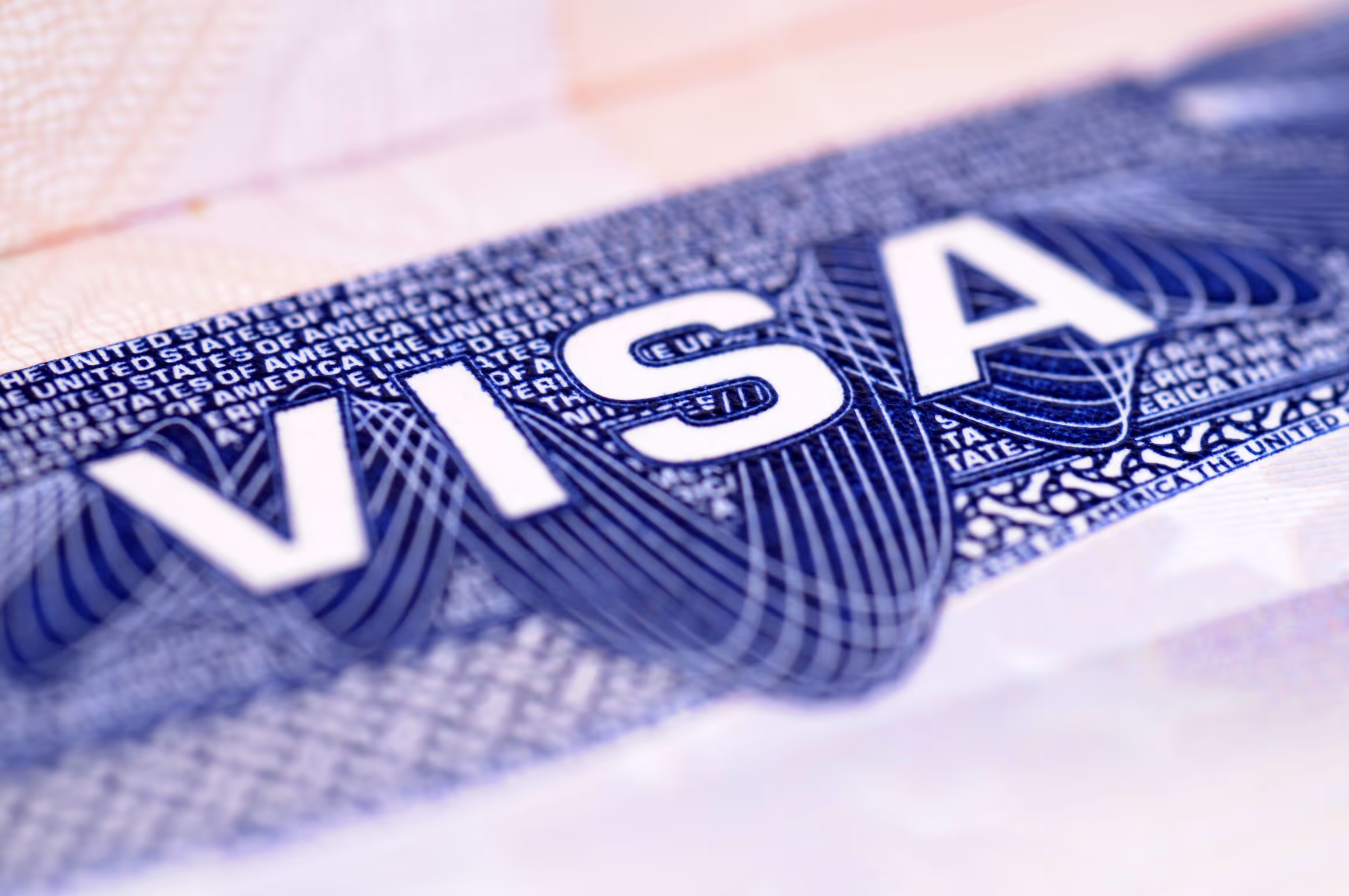
MBA in AI: The Future of Business Leadership in the AI-Era
Subscribe to receive the latest blog posts to your inbox.
MBA in AI Era: Will your MBA degree remain relevant in the next 5, or even 3 years? This question haunts many MBA aspirants who are witnessing the rapidly evolving AI landscape. As AI systems take over complex business tasks, automating over 30% of business workflow, the question arises: Is an MBA still worth it?
As elite MBA experts, we believe — MBA graduates are more important today than ever. The world demands professionals for ethical and sustainable AI adoption in businesses. Companies need experts who know how to bridge an AI-powered solution with human-centric leadership. At the core of this transformation are MBA grads with AI skills, data-fluency, and traditional MBA skills.
Read on, as we dive deeper into the impact of AI in MBA – the threat, opportunities, and beyond:
The Threat (and Opportunity) of an MBA in AI
McKinsey recognises that AI in business is what the steam engine was to the 19th-century Industrial Revolution. It states that AI adoption in businesses can amount to $4.4 trillion in added productivity growth potential.
From automating tasks to algorithmic decision-making, AI is revamping traditional MBA careers such as marketing, finance, and supply chain management. But this doesn’t mean that leadership will become obsolete. On the contrary, AI will shift the emphasis from knowledge to skill.
The automation of routine tasks will impact certain traditional roles, but it’ll also free up human capital for more creative, strategic, and complex endeavours. The World Economic Forum also predicts that AI will create over 97 million new jobs.
However, to cash in on the opportunity, MBA programs and graduates must evaluate the skillset and roles that would be valuable in the future workforce. Fortunately, top business schools are already reshaping their curricula and programs to future-ready their students for the changing job market.
How the MBA in AI is Evolving Business Education
The 2025 Graduate Business Curriculum Summary Report underlines how business schools are responding to the evolving tech and workforce needs. The report reveals that AI has transitioned from being an elective to being a foundational pillar of MBA programs.
AI is shifting not just the program instruction and leadership training. It’s now woven into the core disciplines of business education like strategy, ethics, and operations. Schools are using AI tools to enable predictive modelling, data-driven decision making, and accountability in leadership.
Traditional majors, including finance, marketing, and operations, are also quickly adopting the tech in the form of AI-enabled simulation and real-time data platforms. The 2025 report respondents (110 B-schools and 245 grad business programs) identify AI innovation and sustainable enterprise as the top emerging disciplines. All this together highlights the broader shift of educators towards tech-empowered learning and socially conscious business leadership.
MBA Curriculum in the AI-era
The AI era has pushed schools to transform the way the MBA curriculum is structured and delivered. Top MBA programs and business schools have introduced new courses, certifications, and concentrations focused on AI, including:
US Business Schools
- Wharton’s Artificial Intelligence for Business Major
- Kellogg’s MBAi Program
- MIT Sloan’s Artificial Intelligence: Implications for Business Strategy
EU Business Schools
- London Business School (LBS): Generative Artificial Intelligence
- INSEAD (France/Singapore): Elective Course: Data Science for Business
- IE Business School (Spain): Artificial Intelligence for Innovation, Artificial Intelligence & Data Science Bootcamp
Some schools, like HBS, have launched AI-native core MBA courses. Beyond M7, S10, and other top schools are also moving quickly to meet the market demand. For example, the Tepper School of Business has introduced an AI in Business concentration to educate its students about predictive modelling, automation, and AI-driven decision-making.
Cross-disciplinary learning has also become an increasingly important part of MBA education. Berkeley Haas allows MBA students to take electives across UC Berkeley’s engineering and data science departments. Oxford Saïd offers an AI Ethics module in partnership with the Oxford Internet Institute.
These curriculum and MBA program structure shifts are setting a new baseline. Now, business leaders are expected to understand and shape how AI is used, not just respond to it.
AI in MBA Admissions
AI is also influencing MBA admission – from both ends. MBA applicants and schools are using the tools to expedite a few processes.
For applicants, it often means the initial research. ChatGPT and Claude can quickly provide you with information about MBA programs. They can fetch data from school websites – class profile, admission requirements, and employment reports – to help you find the best fit for you.
However, it can get tricky sometimes. More often than not, the information is sourced from a third-party website without fact-checking them via verifiable sources. For example, if you ask AI about Harvard Business School, it'll provide you with generic information that you’ll need to double check. If you ask why HBS might be a good fit for you, there’s a high possibility it might provide you more or less generic answer.
That’s where AI fails, in providing personalised, expert-vetted insights and original opinions. Therefore, although you can use it for getting started, AI is still a tool you must use with dexterity
Can AI Write Your MBA Essay?
Short answer: Yes. Long answer: It depends on how.
If you dump your CV into ChatGPT or Claude and ask it to "write me a Harvard MBA essay," that’s pure genAI. You’ll get something that looks shiny but sounds like it came from a corporate brochure in 2012. The writing style will feel generic (and undoubtedly recognizable). It won’t have the depth, self-awareness, or sharp insights that HBS is really looking for. Sure, it might tick all the generic buzzword boxes, but it definitely won’t tick the HBS boxes (and btw, it takes a few seconds at best for a reader to spot a genAI essay.)
On the other hand, if you create your own story, your messy draft, your honest reflections, your late-night voice note braindumps, and then use AI to sharpen, organize, and stress-test those ideas? That’s not GenAI. That’s you, with a turbocharged editor. As one of our coaches said it best: “It’s like Excel for bankers. No one calls you lazy for using formulas to build a faster model. You’re still deciding what assumptions to make, what to include, and where to push. Excel just helps you do it faster and better.”
AI, used well, doesn’t replace your thinking. It pushes it. It asks: Why this story? Why this example? Is this your voice? The best applicants aren’t using AI as a cheat code.
They’re using it as a thought partner. To unjam a sentence. To see if their argument holds up. To play devil’s advocate before a deadline. To find holes they didn’t notice when they were too close to the text.
If it’s your story (your failures, your pivots, your why) and AI is just there to polish the edges, that’s not "cheating." Your MBA essay isn’t about the perfect grammar or corporate-speak phrases. It’s about clarity, honesty, and direction. AI can help you get there. But it can’t tell your story for you.
Top AdComs are Using AI
Admission committees are also using AI for application screening and analysing behavioural data from video responses. However, the extent of it varies from school to school.
In our recent webinar with the Assistant Dean of Tepper School of Business at Carnegie Mellon, C. Tad Brinkerhoff revealed that they’ve started using AI for MBA admissions.
“We’ve implemented an AI component in our admissions, and we’ve spent six months trying to train the model to ensure we get the outcome we wanted.”
Therefore, AI is transforming both sides of MBA admissions. And, although full-automation is a rare (and a very unlikely scenario anytime soon), schools will continue to adopt the tech for the early filtering stage to flag standout or weak applicants.
MBA Job Market in the AI Era
Although AI is developing at a lightning-fast speed, it can’t replace judgment, leadership, or strategic vision — yet. That’s why, empowered by the tech, we’ve observed that a few industries will see a massive boom for MBA graduates. It includes:
- AI ethics and governance
- Healthcare tech and digital health transformation
- Sustainable finance and ESG integration
- Supply chain resilience and onshoring
- Digital transformation consulting
Similar to the industrial revolution, new hybrid roles will emerge. However, these positions will require specific skill sets. To future-proof your career, you’ll need to stay updated with changes happening across the industry. Here are a few of our trusted sources:
- Gartner’s Emerging Tech Reports
- Stanford HAI
- Harvard Business Review
You also have to master the foundational AI tools, including ChatGPT, Notion AI, Tableau, and basic Python or R. If you want to build a career in tech, choose MBA programs with strong data science integration and ones that often partner with tech companies.
For example, Wharton Online partnered with Open AI to launch a new course — AI in Education: Leveraging ChatGpt for Teaching. London Business School also collaborated with Open AI to provide its students with Chatgpt Edu.
Most importantly, reflect on how AI is affecting your industry and career goals and mould accordingly. Plus, the insight will also be an incredible way to shape a more compelling MBA application narrative.
Is an MBA Worth it in 2025 and Beyond?
Now, with everything on the table, it’s time to answer the biggest question: Is an MBA still worth it?
The short, and definitive answer is YES, they are. Top MBA programs are known for their ability to quickly adapt to the latest industry trends. Schools like Stanford, HBS, MIT, Wharton, and other top universities are at the forefront of the AI revolution.
Moreover, a top MBA goes beyond the curriculum. One of its most enduring strengths lies in the credibility and connections it provides. Graduating from a top-tier program signals both capability and ambition - qualities that continue to carry weight in competitive business environments.
Alongside the course, you’ll have access to a high-achieving alumni network, thought leaders, and peers that often translates into long-term career growth.
However, that said, learning, unlearning, and relearning will be the new norm of the job market. INSEAD, for example, recently launched a platform to engage with its alumni through consistent access to content, discussions, and networking.
Top MBA Programs that Offer AI Integration
With so many MBA in AI programs, the decision-making process can be overwhelming. Let’s cut that work for you. We’ve done the groundwork, and here are our top 10 MBA in AI programs/integrations that can offer you an exceptional technological edge:
MBA in AI: The Transformation in Up-and-Coming
AI is reshaping industries, but it’s also elevating the role of human leadership. Business professionals who can combine domain knowledge with AI literacy will be instrumental in driving growth and innovation.
The MBA in the AI era is not about chasing novelty. It’s about preparing for a future in which technology and leadership are deeply intertwined. For those looking to lead in tomorrow’s economy, an elite MBA degree will offer the skills, mindset, and perspective to do so with clarity and confidence.
Dive deeper into strategies, experiences, and insights to help you achieve MBA success.

Sign-up for our monthly newsletter that covers admission updates, MBA news, new programs launches and much more.
Discover answers to all your questions about application processes, school selection, and support in our comprehensive FAQ section. It's your go-to resource for clarity and guidance on your MBA journey.


.svg)




